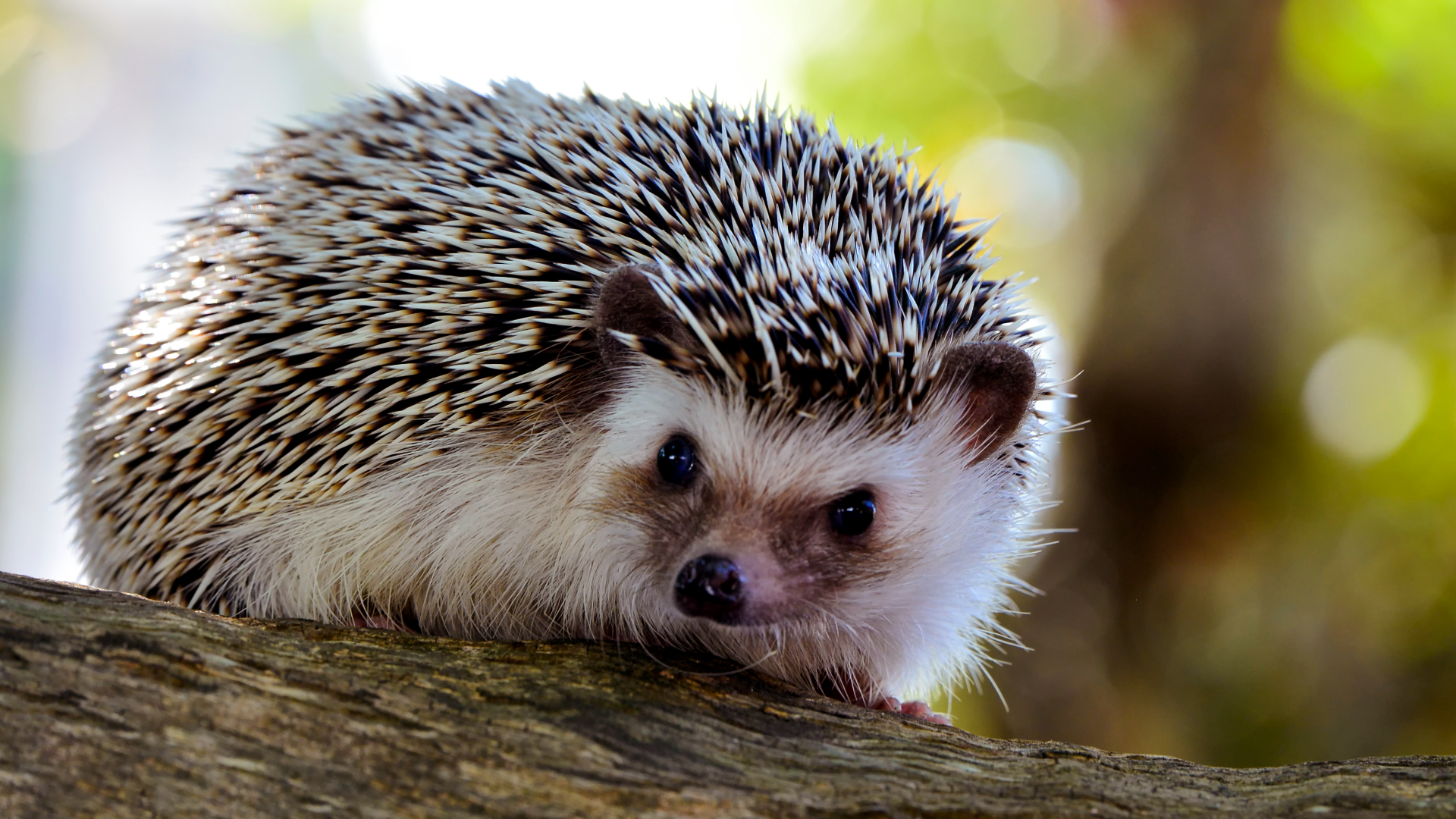Caring for your African Pygmy Hedgehog
African Pygmy Hedgehog
(Atelerix albiventris)
Basic Information:
The African Pygmy Hedgehog is a small, nocturnal insectivore native to the grassy savannas and edges of central Africa. These compact mammals measure 6–9 inches in length and weigh around 1–2 pounds when fully grown. Known for their charming personalities and gentle nature, hedgehogs are solitary animals that enjoy exploring at night and curling into a tight ball when startled. Their unique spines (modified hairs) provide natural protection, while their curious and often playful behavior makes them a fascinating pet to observe.
Lifespan:
4–6 years on average; occasionally up to 8 years with excellent care.
Sexing:
Males have a visible penile sheath (a small belly “button” located mid-abdomen), while females have their urogenital opening close to the anus. Sexing can be done visually once the hedgehog is comfortable being gently handled.
Enclosure:
Minimum Size: 24” x 24” x 18” cage for a single adult (larger is better).
Smooth-sided enclosures (plastic or glass) help maintain warmth and prevent climbing injuries.
Provide a solid exercise wheel (12” diameter), hiding huts, tunnels, and chew-proof toys for enrichment.
Avoid wire floors to prevent foot injuries.
Substrate:
Use paper-based bedding, aspen shavings, or fleece liners. Avoid cedar or pine, as the oils can irritate the respiratory system and skin. Clean and replace bedding weekly; spot clean daily to remove waste.
Lighting & Temperature:
Ambient Temperature: Keep between 72–80°F consistently.
Hedgehogs are prone to hibernation attempts if temperatures drop below 70°F, which can be life-threatening
Use a ceramic heat emitter or space heater if needed; avoid bright lights and drafts.
A 12-hour light/dark cycle using natural or soft room lighting is ideal to maintain their natural rhythms.
Food:
African Pygmy Hedgehogs are insectivores/omnivores. Feed:
A high-quality hedgehog-specific or low-fat cat kibble as the staple diet.
Supplement with gut-loaded insects like crickets, mealworms, or waxworms (offered sparingly as treats).
Occasional fruits or vegetables (like berries or carrots) can be given in small amounts.
Feed in the evening to match their nocturnal habits.
Socialization:
African Pygmy Hedgehogs are solitary and prefer to live alone. While they may initially roll into a ball when disturbed, gentle daily handling helps them become accustomed to human interaction. Allow supervised floor time in a secure space for mental and physical enrichment. Offer toys such as tunnels, treat puzzles, and small balls to encourage exploration.
Curious, quiet, and relatively low-odor, African Pygmy Hedgehogs make excellent companions for patient owners who enjoy observing their nighttime antics. With proper care and gentle socialization, they become affectionate, entertaining pets with charming personalities.
Where can I find an African pygmy hedgehog for sale near me?
African Pygmy Hedgehogs are quirky, adorable little companions that are perfect for folks looking for something a bit different. If you’re in Frederick County, Maryland or nearby areas like Montgomery, Washington, Carroll, or Howard County, come visit Critters, Reptiles & Exotics to see if we have any hedgehogs available and learn more about how to care for them. We’re happy to walk you through setup, diet, and everything in between. There’s always a new adventure waiting at Critters, Reptiles & Exotics!


